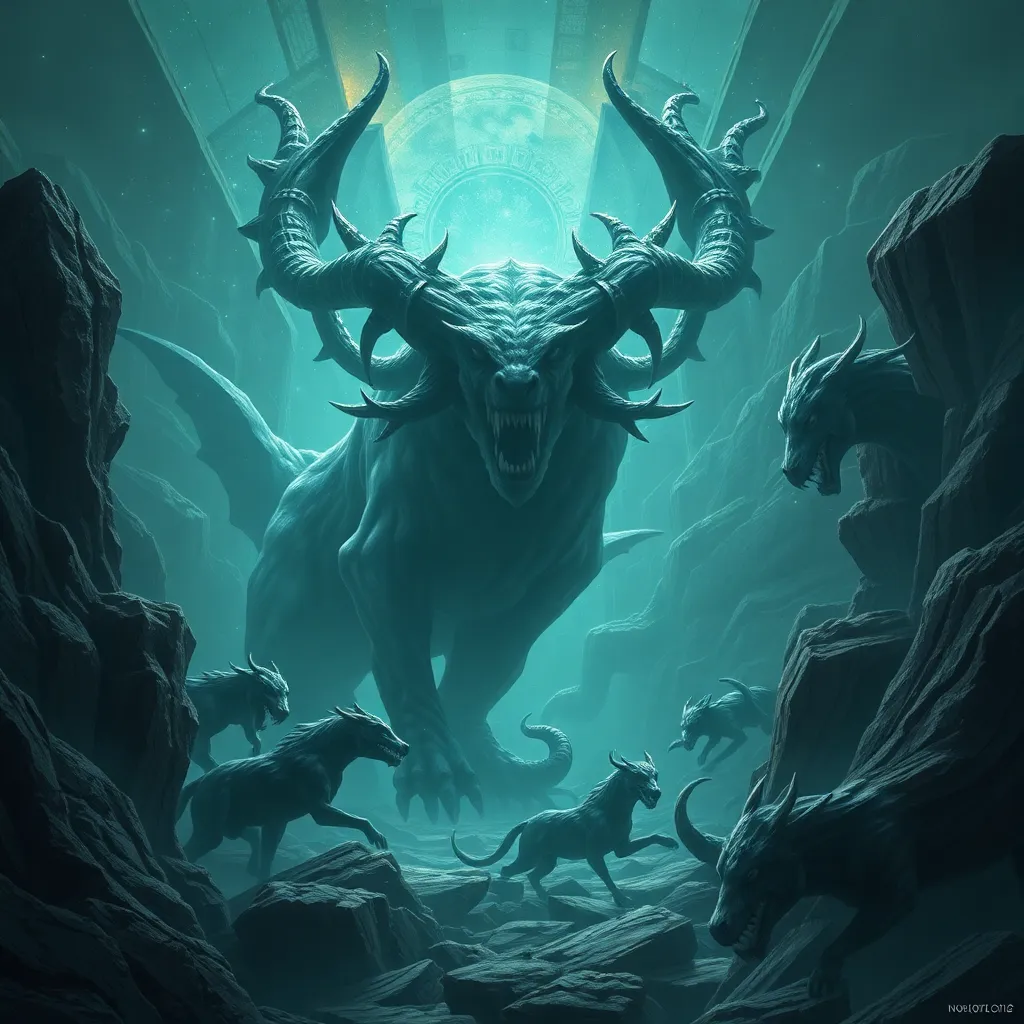The Most Compelling End of the World Myths You Need to Know
Introduction
Throughout history, humanity has been captivated by the notion of an impending apocalypse. From ancient civilizations to modern societies, end-of-the-world myths have shaped cultural narratives and influenced collective fears. These myths often serve as reflections of societal anxieties, revealing deep psychological and cultural undercurrents. Understanding these myths is crucial not only for grasping historical perspectives but also for recognizing their impact on contemporary thought and behavior.
Ancient Civilizations and Their Apocalyptic Visions
Many ancient cultures held unique beliefs regarding the end of the world. The following examples illustrate how different civilizations envisioned apocalyptic events:
- Mayan Civilization: The Mayans had a cyclical view of time, which included the belief that the world would undergo periodic transformations. Their calendar, which famously ended in December 2012, was misinterpreted by many as a prophecy of doom.
- Ancient Egyptians: The Egyptians believed in the cyclical nature of life and death, with the god Osiris representing resurrection. They envisioned the world ending in chaos, leading to the judgment of souls in the afterlife.
- Greek Mythology: The Greeks had various myths about the end of the world, including the idea of a great flood. Prometheus’ punishment and the tale of the Titans’ defeat by Zeus exemplified their beliefs in cosmic cycles and divine retribution.
Prophecy and divine intervention played significant roles in these myths, often portraying the end as a means of purification and renewal.
Religious Perspectives on the Apocalypse
Across major world religions, apocalyptic themes emerge with fascinating similarities and differences. Notable perspectives include:
- Christianity: The Book of Revelation depicts a vivid vision of the end times, involving the second coming of Christ, the final judgment, and the establishment of a new heaven and earth.
- Islam: In Islamic eschatology, the Day of Judgment (Yawm al-Qiyamah) is a significant event where individuals are held accountable for their deeds. The return of Jesus (Isa) is also a crucial component of this narrative.
- Hinduism: Hindu beliefs about the end of the world are entwined with the concept of cosmic cycles (Yugas). The current age, Kali Yuga, is believed to be a time of moral decline leading to eventual destruction and renewal.
These religious narratives often emphasize moral accountability, urging followers to live virtuously in preparation for the eventual reckoning.
The Role of Astrology and Celestial Events
Astronomical phenomena have historically influenced apocalyptic beliefs, with celestial events interpreted as omens or signs of impending doom. Notable events include:
- Planetary Alignments: Alignments of planets have often been tied to predictions of catastrophic events, with some believing they signify divine judgment.
- Eclipses: Solar and lunar eclipses were historically viewed as bad omens, often associated with the wrath of gods and foretelling disasters.
These interpretations highlight humanity’s long-standing fascination with the cosmos and its perceived influence on earthly events.
Modern Myths and Pop Culture Influences
Contemporary end-of-the-world myths have found a robust platform in popular culture, often reflected in films, books, and video games. Some notable examples include:
- Films: Movies like “Mad Max,” “The Road,” and “2012” portray various apocalyptic scenarios, emphasizing survival and human resilience.
- Books: Novels such as “The Road” by Cormac McCarthy and “Station Eleven” by Emily St. John Mandel explore themes of collapse and renewal.
- Video Games: Games like “Fallout” and “The Last of Us” immerse players in post-apocalyptic worlds, exploring the human condition amid chaos.
These narratives not only entertain but also reflect and shape public perceptions of existential threats, often amplifying fears associated with global crises.
Scientific Theories vs. Mythological Narratives
While myths offer rich cultural narratives, scientific theories provide empirical frameworks for understanding potential threats to humanity. Key comparisons include:
- Climate Change: Unlike mythological narratives, climate science presents tangible evidence of environmental degradation and its potential consequences for life on Earth.
- Asteroid Impacts: The scientific community monitors near-Earth objects, emphasizing the real possibility of catastrophic impacts, contrasting with mythological interpretations of divine wrath.
This interplay between science and myth shapes societal beliefs, with myths often providing a moral or ethical narrative to scientific findings.
Psychological Implications of End of the World Myths
The allure of apocalyptic narratives can be attributed to various psychological factors:
- Fear of the Unknown: The uncertainty of the future can lead individuals to seek explanations through apocalyptic myths.
- Existential Anxiety: End-of-the-world scenarios can provide a framework for grappling with mortality and the meaning of life.
- Crisis Coping: Believing in an impending apocalypse can serve as a coping mechanism for individuals facing personal or societal crises.
These psychological effects underscore the relevance of apocalyptic myths in contemporary life.
Survivalism and the End of Days Phenomenon
In response to fears of an impending apocalypse, survivalist communities have emerged, driven by a desire for self-sufficiency and preparedness. Key aspects include:
- Community Building: Survivalist groups often form tight-knit communities, sharing resources and knowledge to prepare for potential disasters.
- Preparedness Culture: The rise of preparedness culture encourages individuals to stockpile supplies and develop skills for self-sufficiency.
This phenomenon reflects a deep-seated anxiety about societal stability and the desire to control one’s fate in uncertain times.
The Future of End of the World Myths in a Changing World
As current global issues such as pandemics, wars, and climate crises unfold, apocalyptic narratives are likely to evolve. Potential trends include:
- Increased Popularity: With rising global tensions, interest in apocalyptic themes may grow, influencing media and cultural narratives.
- Transformation of Myths: Traditional myths may adapt to reflect contemporary challenges, incorporating new fears and technologies.
These developments will shape the future of end-of-the-world myths and their resonance within society.
Conclusion
Exploring end-of-the-world myths reveals their significance in understanding human culture, psychology, and societal fears. As we navigate an increasingly complex world, critically engaging with these narratives can provide valuable insights into our collective psyche and the challenges we face. By recognizing the interplay between myth and reality, we can better prepare for the future while embracing the lessons of our past.



